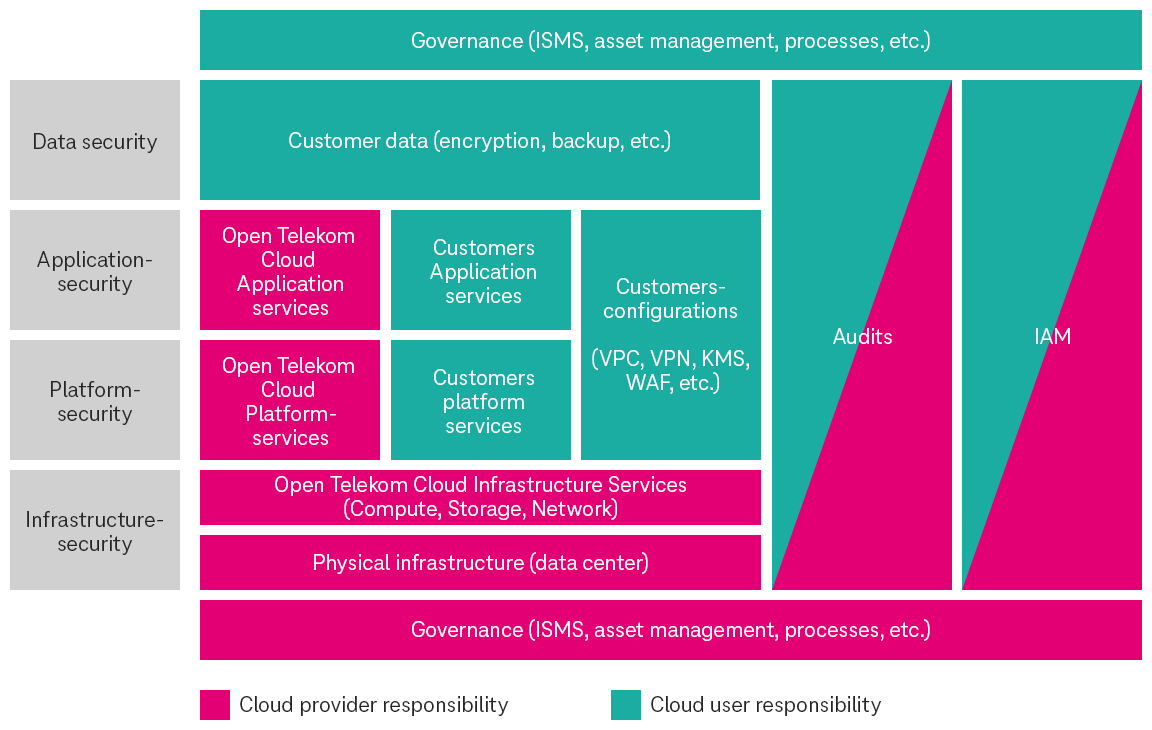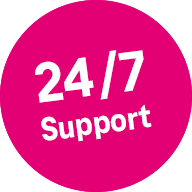As is common with other clouds, the Open Telekom Cloud uses the concept of shared responsibility. Simply put, each party involved in a cloud service is responsible for its sphere of influence. Please note that the shared responsibility model varies depending on the type of cloud service model.
Infrastructure as a Service (IaaS) provides virtualized computing capacity, storage, and sometimes network components to the cloud user for their own management. The cloud user can install his own guest operating systems as he wishes. This gives him control over the overlying platforms, applications and data. With Platform as a Service (PaaS), the cloud user does not have access to the operating system and hardware, but can obtain standardized interfaces provided by the cloud provider. Typical examples are databases or development environments. Software as a Service (SaaS) provides the cloud user with applications in the cloud. Access to underlying layers is no longer possible.
An example from the IaaS model illustrates this: To set up an Elastic Cloud Server, the Open Telekom Cloud provides a virtual machine (VM) via a hypervisor. Users equip it with an initial operating system image, assign networks and data storage to it and connect it to the Internet. Users then install their applications on this VM.
The provider is responsible for providing the hypervisor, the networks in and up to the cloud, storage and images. However, the user is responsible for the appropriate combination of resources, network access to the cloud or the operating system installed in this way together with the installed libraries, tools or application software. This also includes, for example, the regular installation of security patches and updated software versions, but also general authorization management, backup and restore and monitoring of the VM.
The Open Telekom Cloud supports its users by providing regularly updated images and offering repositories for updates. However, as the Open Telekom Cloud has no insight into the virtual servers under the terms of the contract, the user is responsible for making use of these offers.





